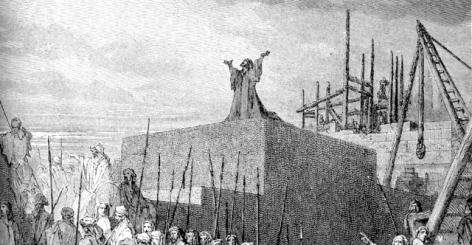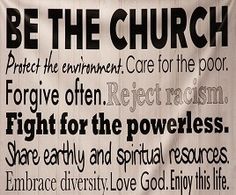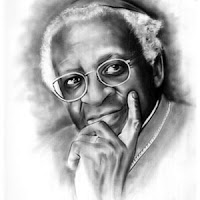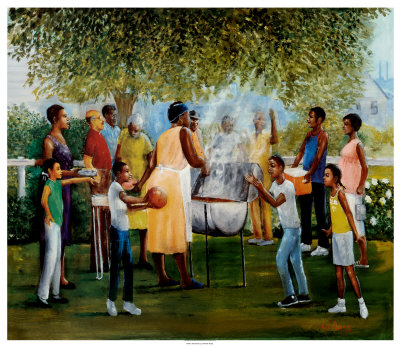 This is the message I preached on Sunday, September 16th, at Hanks Chapel United Church of Christ in Pittsboro, NC I hope it blesses you! If you find yourself in or near Pittsboro, please join us! Hanks Chapel has Sunday school at 9 AM, with worship beginning at 10 AM, and is located at 190 Hanks Chapel Loop, Pittsboro, NC. We also have Bible study most Wednesday nights at 6 PM at our fellowship hall.
This is the message I preached on Sunday, September 16th, at Hanks Chapel United Church of Christ in Pittsboro, NC I hope it blesses you! If you find yourself in or near Pittsboro, please join us! Hanks Chapel has Sunday school at 9 AM, with worship beginning at 10 AM, and is located at 190 Hanks Chapel Loop, Pittsboro, NC. We also have Bible study most Wednesday nights at 6 PM at our fellowship hall.
Sermon “Be the Church: Building Up God’s House”
 Today we are concluding our “Be the Church”series, exploring some of the key values that can be a compass and map guiding us where we need to go in changing times to live as Christ’s Body in this world. As we conclude I want to explore together the tiny book of Haggai.
Today we are concluding our “Be the Church”series, exploring some of the key values that can be a compass and map guiding us where we need to go in changing times to live as Christ’s Body in this world. As we conclude I want to explore together the tiny book of Haggai.
It records the preaching of Haggai. Haggai preached around 520 years before Jesus was born. He preaches after the people of God have gone through a time of devastation and loss. Judah and Israel have fallen, their cities being conquered and ravaged by war. Many of their people have been dragged off first by the Assyrians, then the Babylonians, sent off their land and forced to work all over these empires. Perhaps most troubling of all, their temple, the house for God built by King Solomon, was ransacked and flattened by war.
Haggai is written as this time of loss and tragedy begins to unwind. After being bullied by other powers, the people of God from Israel and Judah witness a new nation come to power, the kingdom of Persia. Knowing as rulers that honey attracts more flies than vinegar, and compassion and respect makes subjects of an empire happier than cruelty, the rulers of Persia choose a kinder path: allowing the Jewish people who have been scattered to return home, to rebuild their homes, and even to begin the work of rebuilding the temple, the house for God.
T o those who do return, this seems like God’s answer to prayers. No longer do they need to be scattered, far from home, but they can finally return, rebuilding all they have lost. They commit to show thankfulness to God by not just rebuilding their own homes and communities, but also rebuilding the temple which has been the center of worship for Jews throughout the world.
o those who do return, this seems like God’s answer to prayers. No longer do they need to be scattered, far from home, but they can finally return, rebuilding all they have lost. They commit to show thankfulness to God by not just rebuilding their own homes and communities, but also rebuilding the temple which has been the center of worship for Jews throughout the world.
Haggai speaks after people begin to settle again, full of faith and commitment, devotion and hope, back on their family lands. He speaks after they have become busy — busy and distracted. Busy with important things — growing crops, building homes, establishing businesses. All necessary and important. Yet in the midst of this important work, people forget their promise to God they made while praying to be able to go home again: to also work together to rebuild the temple, God’s home, as well as their own homes, the place where they all can gather together for worship, to learn God’s word, to support each other in God’s ways.
Haggai’s words speak volumes to us as we look at our own times of loss and desolation, trial and difficulties,both on our own and especially as a church, and as we begin to imagine what our future together might be. His words challenge us about what it means to be the church together in our days ahead.
I will be reading Haggai 1, beginning in verse 2; and then dropping down to chapter 2, beginning in verse 3, from the New Living Translation. Feel free to read along in your own Bible whatever the translation, to read along with the words of my translation on the screen, or just to listen quietly in your seat as you close your eyes and imagine yourself as a part of the story. However you read God’s word, let’s read it together — Haggai 1:2-11; and 2:3-9–
Haggai 1:2-11, New Living Translation
2 “This is what the Lord of Heaven’s Armies says: The people are saying, ‘The time has not yet come to rebuild the house of the Lord.’”
3 Then the Lord sent this message through the prophet Haggai: 4 “Why are you living in luxurious houses while my house lies in ruins? 5 This is what the Lord of Heaven’s Armies says: Look at what’s happening to you! 6 You have planted much but harvest little. You eat but are not satisfied. You drink but are still thirsty. You put on clothes but cannot keep warm. Your wages disappear as though you were putting them in pockets filled with holes!
7 “This is what the Lord of Heaven’s Armies says: Look at what’s happening to you! 8 Now go up into the hills, bring down timber, and rebuild my house. Then I will take pleasure in it and be honored, says the Lord. 9 You hoped for rich harvests, but they were poor. And when you brought your harvest home, I blew it away. Why? Because my house lies in ruins, says the Lord of Heaven’s Armies, while all of you are busy building your own fine houses. 10 It’s because of you that the heavens withhold the dew and the earth produces no crops. 11 I have called for a drought on your fields and hills—a drought to wither the grain and grapes and olive trees and all your other crops, a drought to starve you and your livestock and to ruin everything you have worked so hard to get.”
Haggai 2:3-9, New Living Translation
3 ‘Does anyone remember this house—this Temple—in its former splendor? How, in comparison, does it look to you now? It must seem like nothing at all!4 But now the Lord says: Be strong, Zerubbabel. Be strong, Jeshua son of Jehozadak, the high priest. Be strong, all you people still left in the land. And now get to work, for I am with you, says the Lord of Heaven’s Armies. 5 My Spirit remains among you, just as I promised when you came out of Egypt. So do not be afraid.’
6 “For this is what the Lord of Heaven’s Armies says: In just a little while I will again shake the heavens and the earth, the oceans and the dry land. 7 I will shake all the nations, and the treasures of all the nations will be brought to this Temple. I will fill this place with glory, says the Lord of Heaven’s Armies. 8 The silver is mine, and the gold is mine, says the Lord of Heaven’s Armies. 9 The future glory of this Temple will be greater than its past glory, says the Lord of Heaven’s Armies. And in this place I will bring peace. I, the Lord of Heaven’s Armies, have spoken!”
Let us pray, O Still-speaking God, whose voice not only echoes in the four walls of sanctuaries of brick and stone, but also who speaks in every hill and vale, in farm and factory; Spirit who moves not just in moments of joy and release but also struggle, despair, and hardwork — O Living Lord, open the eyes of our mind and ears of heart, so that we might see and know what Word you have for us in these words of Holy Scripture. Amen.
What are some lessons Haggai teaches about being the church together?
I see a few key lessons–
1 -Even though rebuilding is often more difficult than starting from scratch, it is worth it
2 — we have to balance worship and work in our lives
3 – we all have a part to play in rebuilding God’s house.
4 – the treasure that lies ahead for God’s house comes from opening it up to those who don’t yet have a home in it.
First, it is important to notice that Haggai’s words have as a backdrop the difficulties of rebuilding. This is what I think Haggai gets at when he asks folks if any of them remember the temple in its former glory, compared to the rebuilding project in front of them. Nostalgia for what was can trip us up from embracing with passion the work of healing and working to build what may be.
 Starting from scratch in building something — a home, a new business, a job, an intimate relationship whether marriage or some other close relationship, starting a family — is full of excitement. There is work to do. There are challenges. But everything is so exciting. You can imagine all the good on the horizon, dream for what good can come.
Starting from scratch in building something — a home, a new business, a job, an intimate relationship whether marriage or some other close relationship, starting a family — is full of excitement. There is work to do. There are challenges. But everything is so exciting. You can imagine all the good on the horizon, dream for what good can come.
But when things come unglued — as they often do in life — and you are faced with the choice: do I fix this or not? … well, that is when things get complicated. Repairing damage done to a company by poor choices by yourself or others is much harder in many ways, with less hope on the horizon, than just washing your hands of things and moving elsewhere. Working through problems that have cropped up in a marriage or other intimate relationship can be much more discouraging than dumping it and starting over again, even if you know the other person and what you share is worth it. It is much more light-hearted to hold a new born baby in your arms, dreamy-eyed about its future, than to figure out how to make a relationship work with a teenage or even adult child with whom things have gotten challenging.
And likewise, working to repair damage done in a church when it lost its way, falling into fighting, and division, in ways it loses sight of its mission from God can be hard. It can feel easier to just focus as individuals on just being fed, nourished, on your own somewhere without these problems anymore rather than working to restore what has been broken so it can again be a light in the community like God called us to.
 I’ve shared this before but the challenge of rebuilding our lives, our relationships, and yes the church is beautifully described by C. S. Lewis in his Mere Christianity — “Imagine yourself as a living house. God comes in to rebuild that house. At first, perhaps, you can understand what He is doing. He is getting the drains right and stopping the leaks in the roof and so on; you knew that those jobs needed doing and so you are not surprised. But presently He starts knocking the house about in a way that hurts abominably and does not seem to make any sense. What on earth is He up to? The explanation is that He is building quite a different house from the one you thought of – throwing out a new wing here, putting on an extra floor there, running up towers, making courtyards. You thought you were being made into a decent little cottage: but He is building a palace. He intends to come and live in it Himself.”
I’ve shared this before but the challenge of rebuilding our lives, our relationships, and yes the church is beautifully described by C. S. Lewis in his Mere Christianity — “Imagine yourself as a living house. God comes in to rebuild that house. At first, perhaps, you can understand what He is doing. He is getting the drains right and stopping the leaks in the roof and so on; you knew that those jobs needed doing and so you are not surprised. But presently He starts knocking the house about in a way that hurts abominably and does not seem to make any sense. What on earth is He up to? The explanation is that He is building quite a different house from the one you thought of – throwing out a new wing here, putting on an extra floor there, running up towers, making courtyards. You thought you were being made into a decent little cottage: but He is building a palace. He intends to come and live in it Himself.”
Haggai wanted his audience to know that there is good work to be done now, rebuilding their own home for God. Yet, though such work is hard, it is work God calls us to. That call to embrace this journey is for each of us, both in doing so in this church and the many ways God can be invited home in our families, relationships, work, and communities.
 Secondly, Haggai invites us to balance work and worship in our lives. We see this in the way in which the people to whom Haggai preaches are busy with necessary, practical things — growing crops, building houses,starting and raising families, running businesses — and in that necessary busyness, they forget the commitments they made to God in prayer to build up the house of God. This is something that is so easy to happen in our lives — becoming busy in our daily tasks and struggles and forgetting our relationship with God and commitments we make to God.
Secondly, Haggai invites us to balance work and worship in our lives. We see this in the way in which the people to whom Haggai preaches are busy with necessary, practical things — growing crops, building houses,starting and raising families, running businesses — and in that necessary busyness, they forget the commitments they made to God in prayer to build up the house of God. This is something that is so easy to happen in our lives — becoming busy in our daily tasks and struggles and forgetting our relationship with God and commitments we make to God.
The result of this distracted forgetfulness is that the whole community feels incomplete, like there is a gaping hole, an emptiness in the center of their lives. We see this in the talk of them eating but not being filled, drinking but still being raked with thirst, planting but never harvesting enough. Some commentaries suggest this means there is a famine or the work they are doing is failing. Yet how can people be impoverished and starving despite their work, if God through Haggai says the people are living luxuriously? No, I think Haggai’s real point is that because his people are letting the necessary work in front of them lead them to forget their commitments to worship and serve God, they remain feeling empty, incomplete, despite all the material success they are having out of this work.
Their experience of feeling empty despite building homes, growing families, harvesting food, fits the experience of the early African preacher Augustine of Hippo. After living a life of decadent material pleasure, Augustine found his life remained deeply empty and  meaningless. In despair he turns to God, praying O God, “You have made us for yourself, and our hearts are restless, until they can find rest in you.” In turning his life to God, he finds the fulfillment his material success and pleasure could not give. We, like the people of Israel, too need to make time for daily walking with God in our personal lives and living out God’s call to us to do our part to build up his house, the church.
meaningless. In despair he turns to God, praying O God, “You have made us for yourself, and our hearts are restless, until they can find rest in you.” In turning his life to God, he finds the fulfillment his material success and pleasure could not give. We, like the people of Israel, too need to make time for daily walking with God in our personal lives and living out God’s call to us to do our part to build up his house, the church.
This call to worship includes stepping away from the busyness of our lives to worship God each day through quiet meditation, Scripture reading, and prayer. Just like in a marriage or intimate partnership we need time carved out to connect, invest in our spouse or partner, for that relationship to thrive, so we need to take time as often as possible to connect personally one on one with God.
 Yet this call is not just answered through private time alone with God, but also includes digging ditches, laying foundations, putting up walls, roofing a building. It includes rolling up sleeves and doing the practical work of the house of God God calls us to do. You know this Sunday we were originally scheduled to have Michelle Parlet join the church and she passed a week and a half ago. After she passed, many of you reached out to me about how she touched your life. What touched people, I think is how she did what Haggai suggested. She made room for God but specifically not only by showing up on Sunday or studying Bible with us Wednesday night but also by rolling up her sleeves and helping people: visiting some of our sick and shut in members here at Hanks, for instance.
Yet this call is not just answered through private time alone with God, but also includes digging ditches, laying foundations, putting up walls, roofing a building. It includes rolling up sleeves and doing the practical work of the house of God God calls us to do. You know this Sunday we were originally scheduled to have Michelle Parlet join the church and she passed a week and a half ago. After she passed, many of you reached out to me about how she touched your life. What touched people, I think is how she did what Haggai suggested. She made room for God but specifically not only by showing up on Sunday or studying Bible with us Wednesday night but also by rolling up her sleeves and helping people: visiting some of our sick and shut in members here at Hanks, for instance.
This brings us to the two final parts of Haggai’s message. First, though it is easy to look for someone else — whether that be a pastor, deacons, council members, or others— to do the work of God’s house — which is to both share the message of Jesus, and also help build a community that helps be an answer to Christ’s prayer that God’s kingdom come here on earth as in heaven — ultimately we each have a part to play, be it shoveling, raising funds, publicizing the work of the church, visiting sick people, doing phone trees, baking dinners. What are you doing? What are you called to do?
Finally, Haggai shows us that the future of God’s house is found not in those good old days that have past but found in those not yet a part of God’s house being drawn into it. The wealth to come for Haggai’s temple is when the nations around Israel who do not know the God of the Bible see his community’s worship, love, and service, are shaken up  by this, and drawn to join them. Likewise it is as we open our doors to those in our communities who right now don’t have a place they feel they can fit into in God’s house, and help them find a home with us, just as Michelle did among us these last several months, and some of you new to our church have as well. Our work must also welcome those around us.
by this, and drawn to join them. Likewise it is as we open our doors to those in our communities who right now don’t have a place they feel they can fit into in God’s house, and help them find a home with us, just as Michelle did among us these last several months, and some of you new to our church have as well. Our work must also welcome those around us.
What kinds of work do you see before us that needs to be done to build up our house of God here? What new ways do you feel called to do help with this work? What ways do you feel called to invite those who don’t feel they have a place to call home in God’s house anywhere yet to be welcomed here?
I close with the words I used to begin this series, from Teresa of Avila — “Christ has no body now on earth but yours; no hands but yours; no feet but yours. Yours are the eyes through which the compassion of Christ must look out on the world. Yours are the feet with which He is to go about doing good. Yours are the hands with which He is to bless His people.” May we hear and answer this call to be the Church, Christ’s Body, today and always. Amen. And amen.
 This Sunday we continue our series from the book of Ephesians exploring what it means to “Be the Church”, looking for what values can be a compass guiding us on the path God has for us as a church in the midst of change and transition. Today we start with Ephesians 6, beginning in verse 10. I will be using the Common English Bible. Feel free to read along in your own Bible in the translation of your choice, read along on the screen with the translation I am using, or just close your eyes and listen, imagining yourself within the story. However you best experience it, let’s turn to God’s Word together.
This Sunday we continue our series from the book of Ephesians exploring what it means to “Be the Church”, looking for what values can be a compass guiding us on the path God has for us as a church in the midst of change and transition. Today we start with Ephesians 6, beginning in verse 10. I will be using the Common English Bible. Feel free to read along in your own Bible in the translation of your choice, read along on the screen with the translation I am using, or just close your eyes and listen, imagining yourself within the story. However you best experience it, let’s turn to God’s Word together. “Them’s fighting words!” Is one way you could summarize Paul in Ephesians 6. Don’t just roll over and accept the evil of this world, he tells us. Don’t just act like you are helpless in the face of all who are hurting. Roll up your sleeves and get to work. Go out swinging!
“Them’s fighting words!” Is one way you could summarize Paul in Ephesians 6. Don’t just roll over and accept the evil of this world, he tells us. Don’t just act like you are helpless in the face of all who are hurting. Roll up your sleeves and get to work. Go out swinging! Powers and principalities is a Bible way of talking those systems of oppression like racism, sexism, greedy consumerism, that drive our culture, take on a life and personality of their own, and can get into our hearts and minds like a drum beat pounding away driving us ahead in destructive ways unless we become aware of them and learn to push back against them. When we realize it is such powers and principalities, not other people, we are called to battle, it changes how we look at what we are to stand and fight for.
Powers and principalities is a Bible way of talking those systems of oppression like racism, sexism, greedy consumerism, that drive our culture, take on a life and personality of their own, and can get into our hearts and minds like a drum beat pounding away driving us ahead in destructive ways unless we become aware of them and learn to push back against them. When we realize it is such powers and principalities, not other people, we are called to battle, it changes how we look at what we are to stand and fight for. Ephesians. Malusi is tortured and humiliated while in jail. After each time he is abused, though, Malusi responds not by hating his accusers but by saying “By the way, these are God’s children and yet they are behaving like animals. They need us to help them recover the humanity they have lost”. Recognizing the true enemy which they are fighting is the system and powers of injustice, not individual people or groups, is why Malusi, Tutu, and others can continue to act nonviolently, with love, and open to reconciliation with those who have oppressed them while still resisting the systems of oppression like apartheid that seek to hold them down.
Ephesians. Malusi is tortured and humiliated while in jail. After each time he is abused, though, Malusi responds not by hating his accusers but by saying “By the way, these are God’s children and yet they are behaving like animals. They need us to help them recover the humanity they have lost”. Recognizing the true enemy which they are fighting is the system and powers of injustice, not individual people or groups, is why Malusi, Tutu, and others can continue to act nonviolently, with love, and open to reconciliation with those who have oppressed them while still resisting the systems of oppression like apartheid that seek to hold them down. We have to work toward ourselves and others resisting the ways such patterns of oppression trip us up, for as Dr. King once said, “Injustice anywhere is a threat to justice everywhere. We are tied together in the single garment of destiny, caught in an inescapable network of mutuality. And whatever affects one directly affects all indirectly. For some strange reason I can never be what I ought to be until you are what you ought to be. This is the way God’s universe is made; this is the way it is structured.”
We have to work toward ourselves and others resisting the ways such patterns of oppression trip us up, for as Dr. King once said, “Injustice anywhere is a threat to justice everywhere. We are tied together in the single garment of destiny, caught in an inescapable network of mutuality. And whatever affects one directly affects all indirectly. For some strange reason I can never be what I ought to be until you are what you ought to be. This is the way God’s universe is made; this is the way it is structured.” in which people keep finding people every day drowning in the town’s river – first a few each day, then many; and then more and more each day. The call to build a more just and loving world is living out the mandate of Micah 6:8 — what does the Lord require of you, o Mortal? But to do justice, to love mercy, to walk humbly with your God.
in which people keep finding people every day drowning in the town’s river – first a few each day, then many; and then more and more each day. The call to build a more just and loving world is living out the mandate of Micah 6:8 — what does the Lord require of you, o Mortal? But to do justice, to love mercy, to walk humbly with your God. rulers, authorities, and powers: working together to resist and overturns patterns of injustice. It means both working to help feed the hungry (loving mercy) and also working to help the world become a place where fewer go without (doing justice). It means working to build bridges between people who are divided over race, sexuality, background, you name it (loving mercy). It also means working to try and change how we treat people so patterns of prejudice and exclusion are torn down (doing justice). And for us, all this is driven and empowered by our personal relationship with God, walking with God humbly every day.
rulers, authorities, and powers: working together to resist and overturns patterns of injustice. It means both working to help feed the hungry (loving mercy) and also working to help the world become a place where fewer go without (doing justice). It means working to build bridges between people who are divided over race, sexuality, background, you name it (loving mercy). It also means working to try and change how we treat people so patterns of prejudice and exclusion are torn down (doing justice). And for us, all this is driven and empowered by our personal relationship with God, walking with God humbly every day.
 This is the message I preached on Sunday, September 2nd, at Hanks Chapel United Church of Christ in Pittsboro, NC I hope it blesses you! If you find yourself in or near Pittsboro, please join us! Hanks Chapel has Sunday school at 9 AM, with worship beginning at 10 AM, and is located at 190 Hanks Chapel Loop, Pittsboro, NC.
This is the message I preached on Sunday, September 2nd, at Hanks Chapel United Church of Christ in Pittsboro, NC I hope it blesses you! If you find yourself in or near Pittsboro, please join us! Hanks Chapel has Sunday school at 9 AM, with worship beginning at 10 AM, and is located at 190 Hanks Chapel Loop, Pittsboro, NC. us not to simply look to serve ourselves but open our eyes all around us, to see those in need in our communities.Today we start with Ephesians 4, beginning in verse 1. I will be using the New Living translation. Feel free to read along in your own Bible in the translation of your choice, read along on the screen with the translation I am using, or just close your eyes and listen, imagining yourself within the story. However you best experience it, let’s read God’s Word together.
us not to simply look to serve ourselves but open our eyes all around us, to see those in need in our communities.Today we start with Ephesians 4, beginning in verse 1. I will be using the New Living translation. Feel free to read along in your own Bible in the translation of your choice, read along on the screen with the translation I am using, or just close your eyes and listen, imagining yourself within the story. However you best experience it, let’s read God’s Word together. dad’s carpentry table; or the feel of a spring breeze through the leaves reminding you of a family reunion each spring; or the taste of a pecan or apple pie cooked just right which reminds you of your momma or grandma’s best home-made masterpiece, or the sight of leaves changing reminding you of an autumn trip with family to the mountains. We each have something that calls us home.
dad’s carpentry table; or the feel of a spring breeze through the leaves reminding you of a family reunion each spring; or the taste of a pecan or apple pie cooked just right which reminds you of your momma or grandma’s best home-made masterpiece, or the sight of leaves changing reminding you of an autumn trip with family to the mountains. We each have something that calls us home. to be close to the earth, loved to make things with her hands, and loved to add beauty to the world. And whenever I bite into a fresh garden tomato, I remember the taste of the tomatoes she grew and feel I am, for but a moment, returning home, reminded of who I am and whose I am.
to be close to the earth, loved to make things with her hands, and loved to add beauty to the world. And whenever I bite into a fresh garden tomato, I remember the taste of the tomatoes she grew and feel I am, for but a moment, returning home, reminded of who I am and whose I am. Just as having those lady bugs falling all over me that one Sunday here reminded me what it meant to be my mother’s youngest boy and all the faith she had in me on a day I needed such a reminder, so as Christians we bathe ourselves with water and have the name of God — Father, Son, and Spirit — spoken over us at the start of our Christian journeys, as a way of claiming who we are in God’s eyes: God’s beloved children, in whom God takes delight; ones for whom Christ came, for whom Christ died, ones whose lives have been made new through his resurrection, ones called to be his hands and feet, his body, in this world by working to share his love in word and deed, and working to help find healing for all that is hurting and broken in God’s world. Martin Luther, who helped start the Protestant Reformation, used to say “Remember your baptism”. Luther challenged people, whenever they wash their face in the morning, to pause and remember it, because doing so called to memory these essentials of who we are and who we are called to be. “Remember your baptism” invites us all to recognize our baptism is our
Just as having those lady bugs falling all over me that one Sunday here reminded me what it meant to be my mother’s youngest boy and all the faith she had in me on a day I needed such a reminder, so as Christians we bathe ourselves with water and have the name of God — Father, Son, and Spirit — spoken over us at the start of our Christian journeys, as a way of claiming who we are in God’s eyes: God’s beloved children, in whom God takes delight; ones for whom Christ came, for whom Christ died, ones whose lives have been made new through his resurrection, ones called to be his hands and feet, his body, in this world by working to share his love in word and deed, and working to help find healing for all that is hurting and broken in God’s world. Martin Luther, who helped start the Protestant Reformation, used to say “Remember your baptism”. Luther challenged people, whenever they wash their face in the morning, to pause and remember it, because doing so called to memory these essentials of who we are and who we are called to be. “Remember your baptism” invites us all to recognize our baptism is our  commissioning to do God’s work. It is not just ordained pastors with titles and degrees who have a calling but each of us have callings we live out too: in our day to day jobs, our care for our families, our care for friends and neighbors, our social activism. Our baptisms have given us our own ministries in those moments and contexts, our own callings no one else can answer yet which we live out whenever we do such seemingly ordinary earthy work and care for the glory of God, and in ways that point others to Christ’s love and build justice and compassion in our community.
commissioning to do God’s work. It is not just ordained pastors with titles and degrees who have a calling but each of us have callings we live out too: in our day to day jobs, our care for our families, our care for friends and neighbors, our social activism. Our baptisms have given us our own ministries in those moments and contexts, our own callings no one else can answer yet which we live out whenever we do such seemingly ordinary earthy work and care for the glory of God, and in ways that point others to Christ’s love and build justice and compassion in our community. take bread together we have broken and drink from a shared cup together as we do each communion, we are reminding ourselves of the very same truth. We are reminded too, in that bread and cup that even when we feel broken, and our life feels poured out and near empty, we remain Christ’s Body, God’s hands and feet in the world. Each of us, no matter how seemingly weak, broken, or different, have a part to play in God’s work.
take bread together we have broken and drink from a shared cup together as we do each communion, we are reminding ourselves of the very same truth. We are reminded too, in that bread and cup that even when we feel broken, and our life feels poured out and near empty, we remain Christ’s Body, God’s hands and feet in the world. Each of us, no matter how seemingly weak, broken, or different, have a part to play in God’s work. having to go to a temple, paying costly for fancy sacrifices or rituals, now God can be reached by the least financially successful as freely as they can dip into the water flowing in the creek out back. And the bread and cup we bless is the common meal shared by rich and poor alike; and also is a gathering of the fruit of honest work: the grain and fruit of the wine grown in the soil of God’s good earth, the fruit of the labor of hands in the fields that plant, water, harvest, prepare, until it is ready to go to our table. In these ways, it is also a reminder of our connection to each other, and to God’s earth, and our call to care for each of these well.
having to go to a temple, paying costly for fancy sacrifices or rituals, now God can be reached by the least financially successful as freely as they can dip into the water flowing in the creek out back. And the bread and cup we bless is the common meal shared by rich and poor alike; and also is a gathering of the fruit of honest work: the grain and fruit of the wine grown in the soil of God’s good earth, the fruit of the labor of hands in the fields that plant, water, harvest, prepare, until it is ready to go to our table. In these ways, it is also a reminder of our connection to each other, and to God’s earth, and our call to care for each of these well.